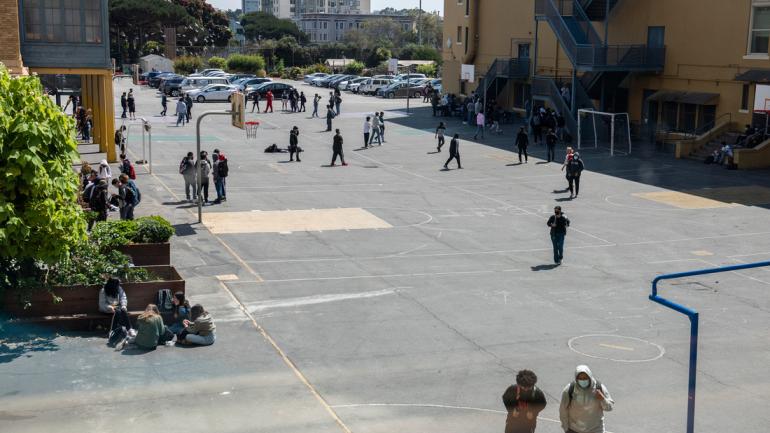
Editor's Note: Don't miss the full story! Check out our previous stories BIPOC Affinity Groups, Anti-Racist Professional Development, and our interview with GHS' Co-Principals in our Annual Report about Gateway's evolving approach to anti-racism.
Dismantling white supremacy in the public school setting is an all-hands-on-deck endeavor. Even the best-trained, most well-intentioned educators can falter or fall short in the face of norms and institutions that for hundreds of years have both overtly and covertly worked to perpetuate narratives and systems that shortchange students, staff and families of color. Gateway staff are working to address this on many fronts: BIPOC affinity groups at both the staff and student levels serve as both practical incubators for change and community support; professional development opportunities that emphasize anti-racist practices, and at GHS white-identifying teachers have created the White Anti-Racist Teachers (WART) working group, devoted to ensuring white faculty are continuously becoming more effective allies to BIPOC students and colleagues.
A small handful of GHS educators started WART five years ago, basing its structure, goals and practices on successful models like Building Anti-Racist White Educators (BARWE) in Philadelphia. Since then, its mission has only become even more glaringly urgent, and the group has grown to include most of the school’s white teachers, who meet twice a month during lunch.
“While the group has evolved a lot, the core purpose of it has stayed the same, which is to undo the structures of white supremacy in school and the harm it does to our students and BIPOC colleagues,” said Erin Willard, a Humanities teacher who co-facilitates WART along with Leah Regan, who also teaches Humanities, and GHS’ College Counselor Jenna Marx. “And to actively take on some of the labor of doing it as white educators, so that BIPOC colleagues don't have to do it all.”
What exactly that work entails varies widely, from something as small as workshopping how to react in the moment when students or coworkers cross a line to something as complex as reworking the entire 9th grade humanities curriculum to introduce the principles of ethnic studies to all freshmen. Some teachers choose to work in partners or smaller groups for added support, and will observe one another in class to offer feedback around shared goals for anti-racism in the classroom.
Representatives from WART and the BIPOC staff groups meet with school leaders to form the Equity Coalition, which determines what equity-focused projects and initiatives the whole school will prioritize tackling. Current priorities for the 2021-22 school year include designing solidarity-focused professional development plans for the next semester and fostering joy among the BIPOC student community.
“What feels most exciting to me is the potential for real institutional change after so many years of schools ‘doing things a certain way,’” said Willard. “It’s further evidence of Gateway really trying not to settle for the status quo. We challenge each other as colleagues to be better and do better, which has always felt like a big part of Gateway, but this work in particular feels urgent because of the harm that schools, including Gateway, have perpetuated. It’s bigger than just changing up the novel you’re teaching.”
Teachers are getting students in on the act, as well. WART teachers are making a bulletin board to explain to students what they’re focusing on, and the newly-formed White Students Stepping Up racial justice group (abbreviated, delightfully, as WSSUp) was invited to observe a WART meeting and see firsthand how adults navigate sometimes uncomfortable discussions about race and racism. Teachers are also compiling a student-friendly launchpad of resources that will be freely available to any student interested in racial justice.